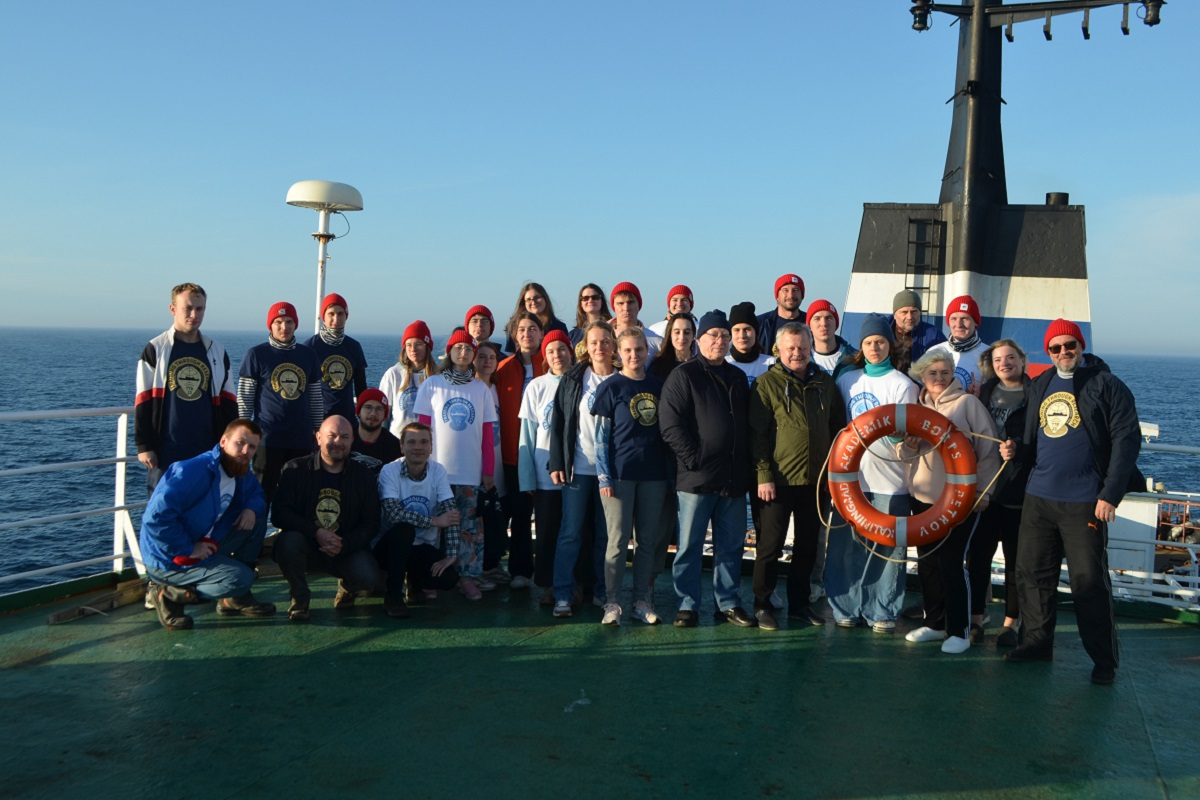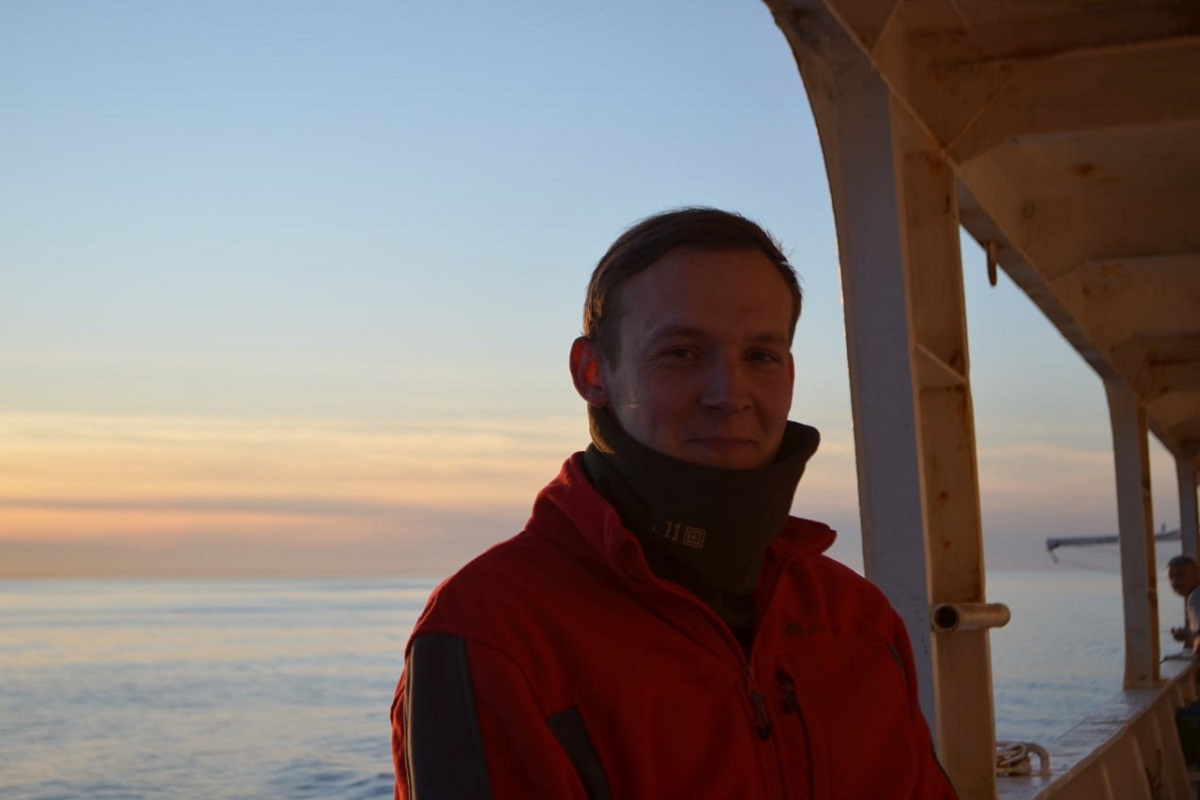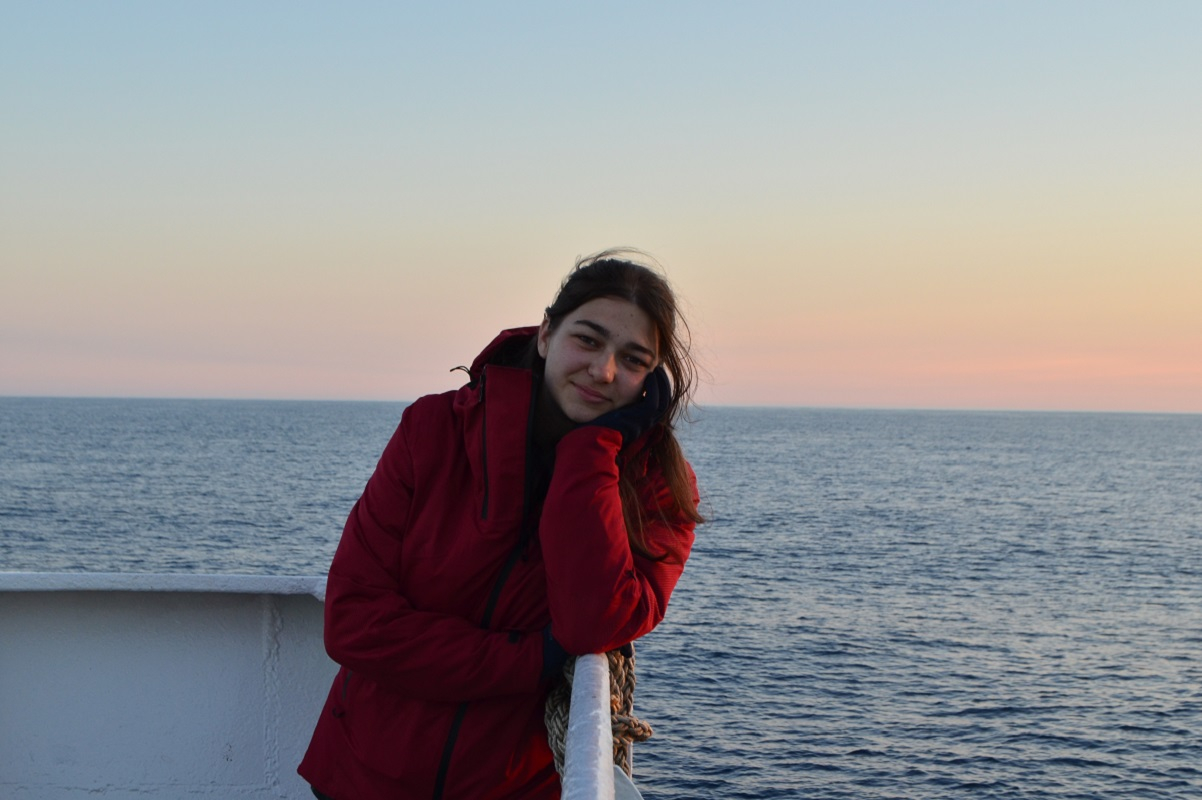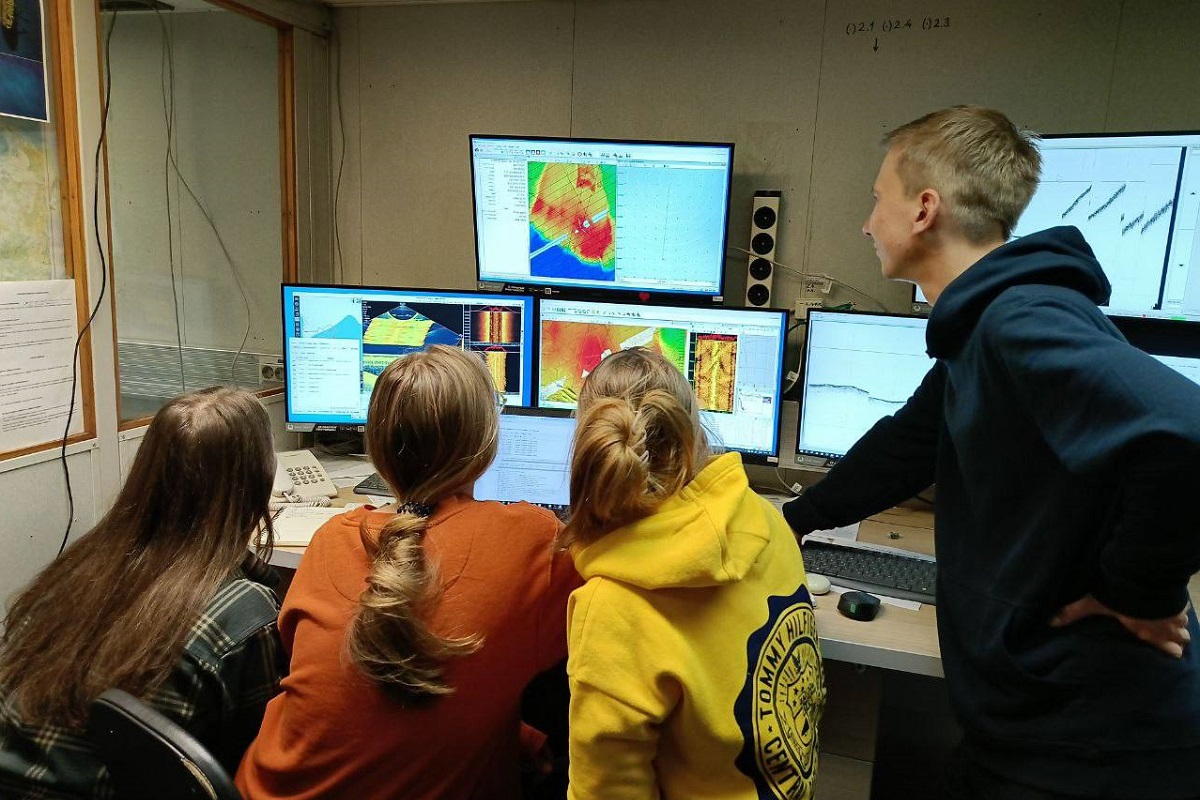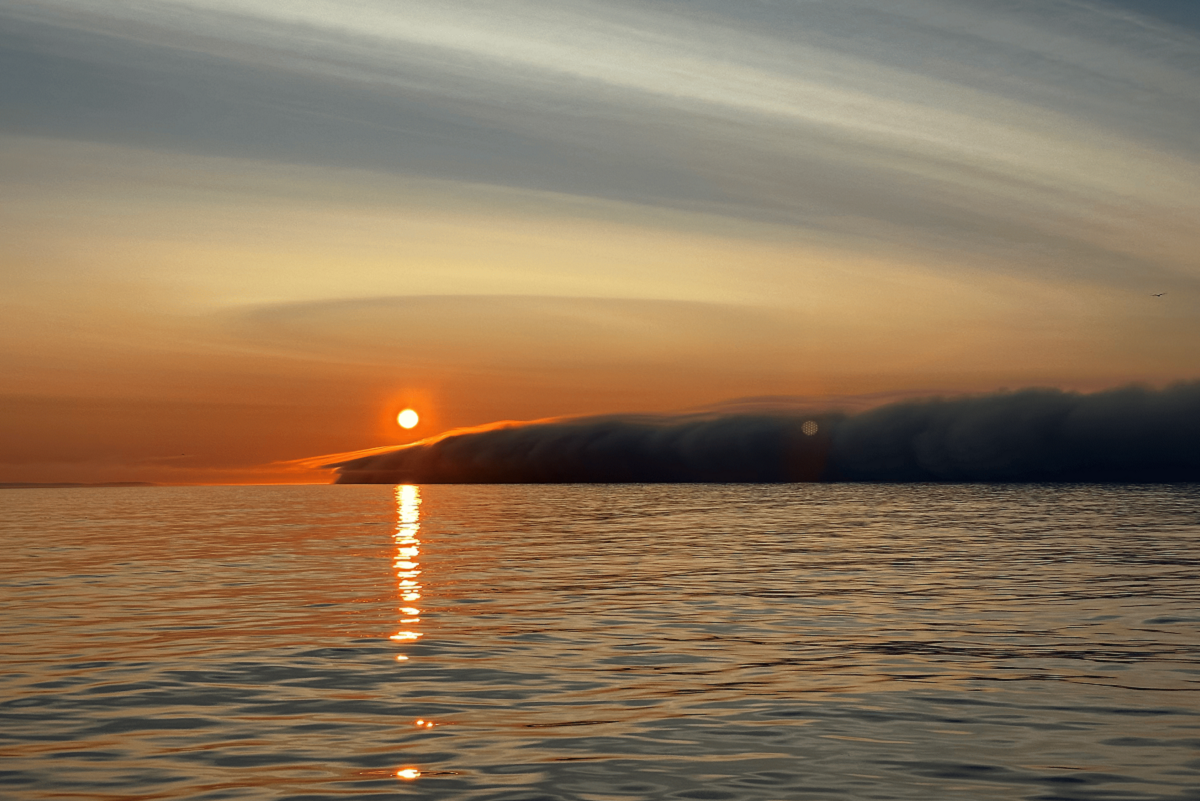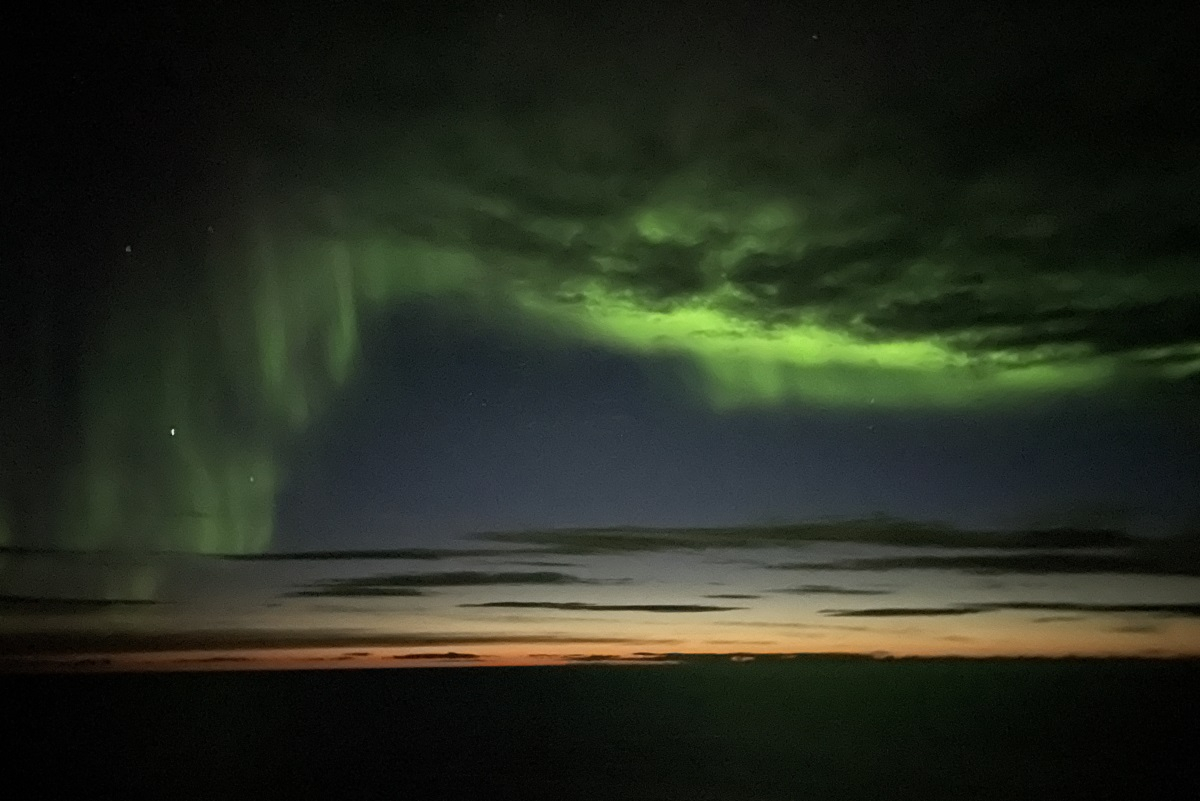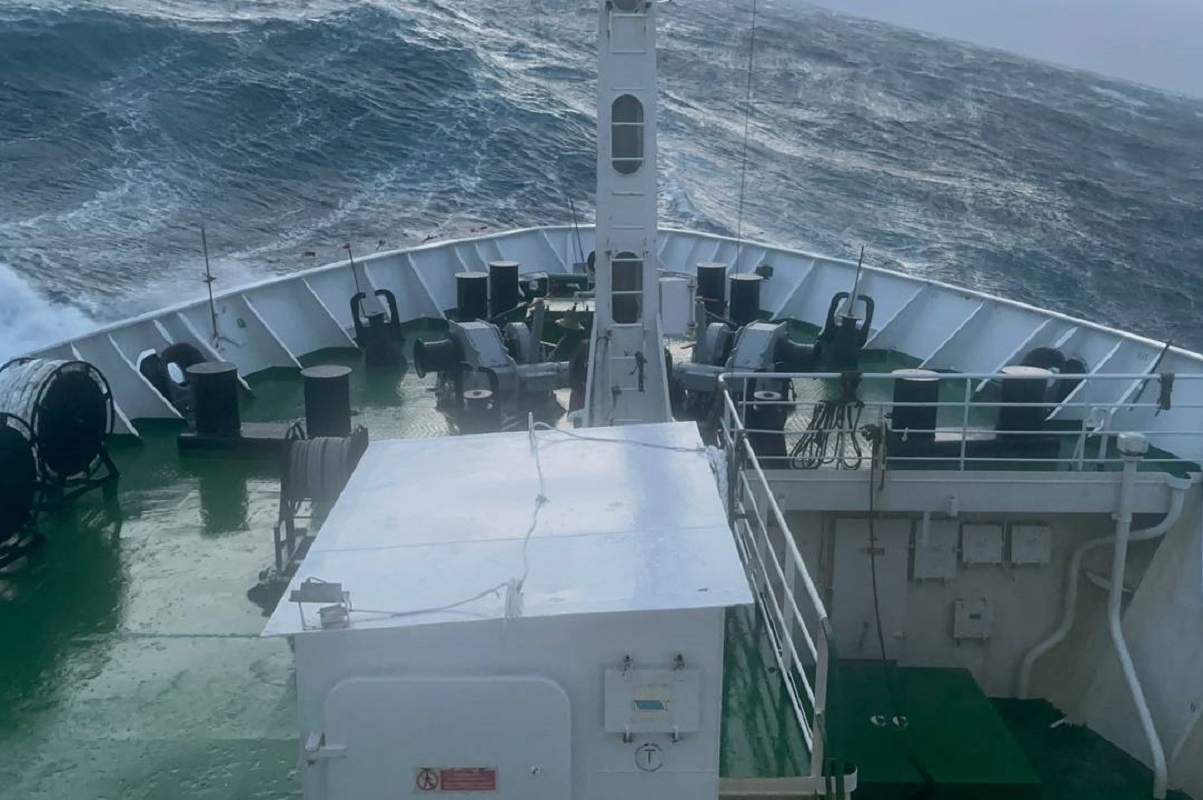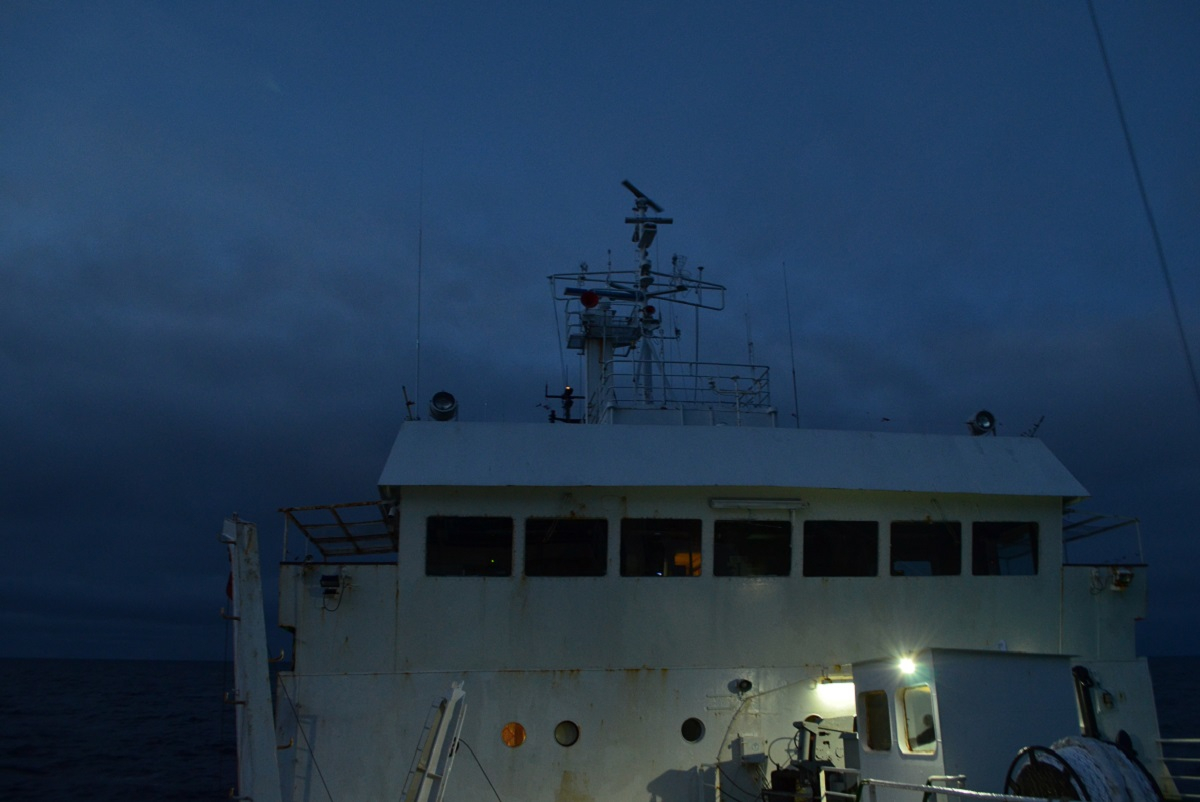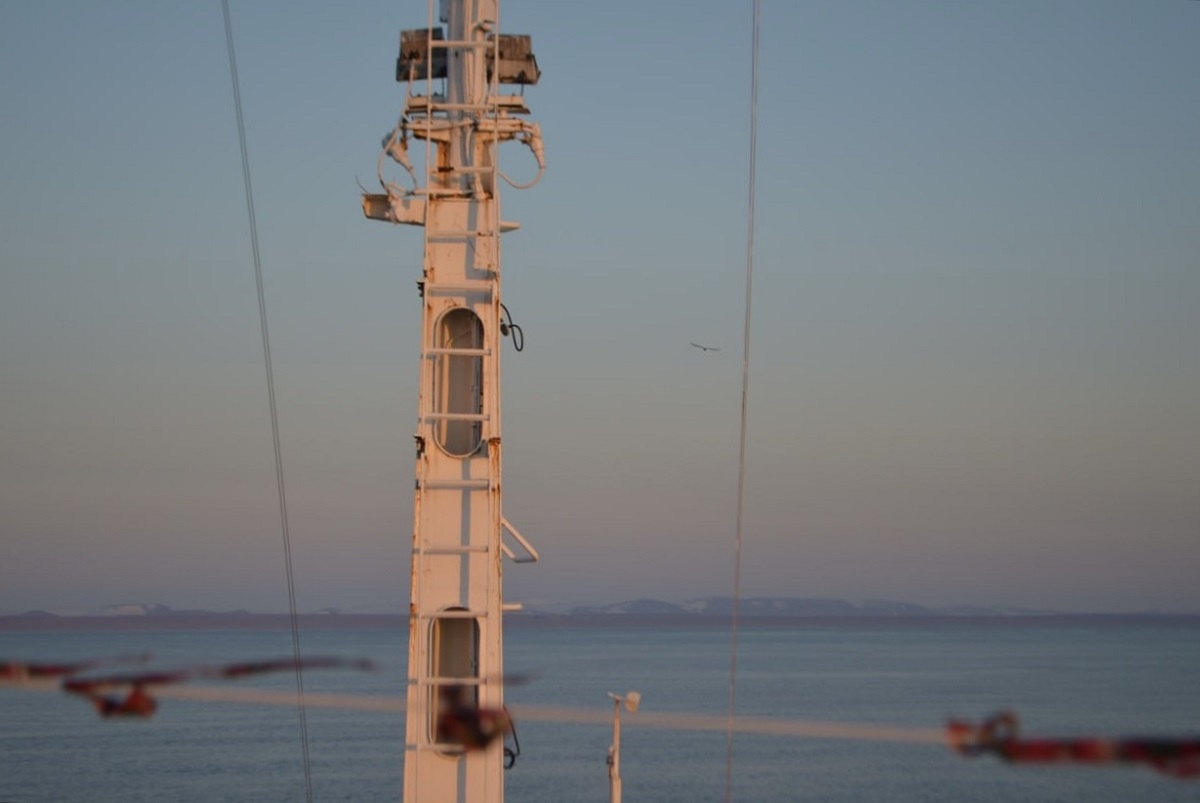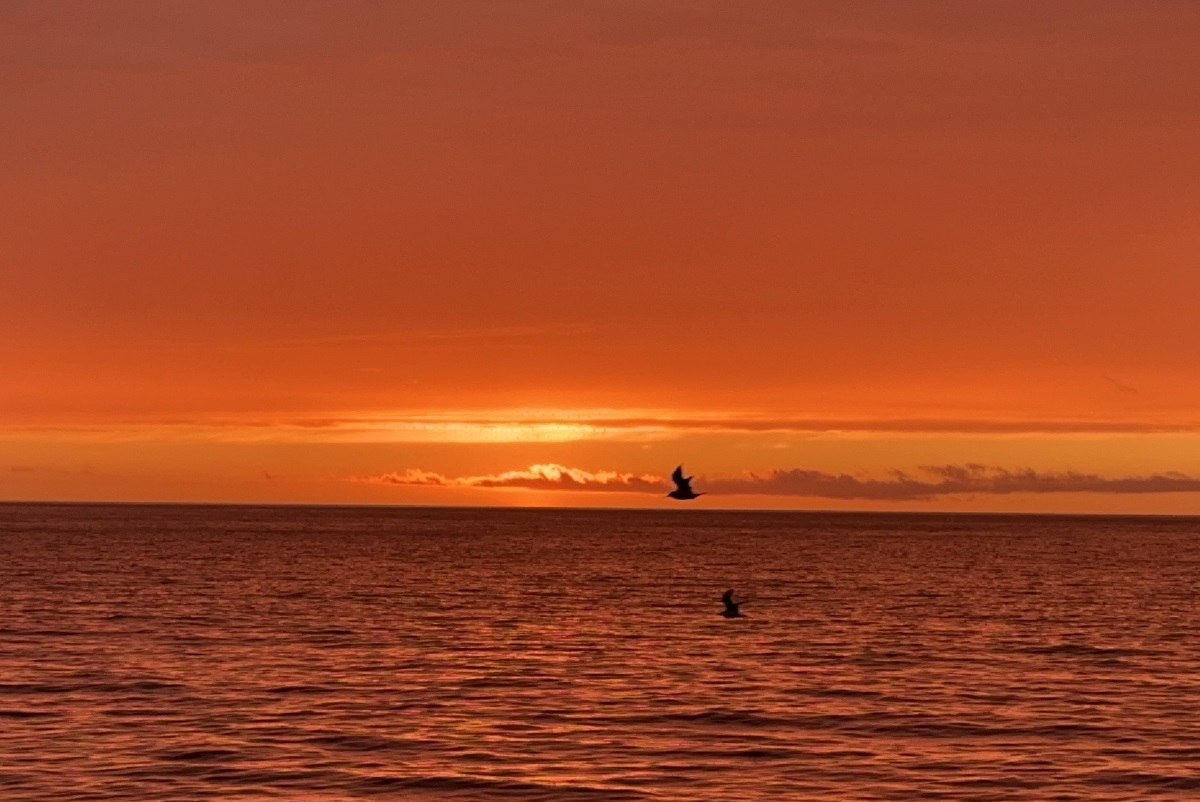The Floating University TTR 23 expedition: students from St Petersburg University address current issues in oil geology
Early-career geochemists and geomorphologists from St Petersburg University have taken part in the Floating University TTR23 expedition, which is part of the UNESCO — Lomonosov Moscow State University programme.
Sergei Gavrilov, a master’s student in the Department of Geochemistry at St Petersburg University, and Mariia Biriuk, a master’s student in the Department of Geomorphology at St Petersburg University, spent 41 days on board of the vessel "Akademik Boris Petrov", studying, among other things, the features of relief formation, sediment accumulation and bottom fluid discharge (gas release) in the north of the Barents-Kara shelf.
Together with a team of scientists from Moscow State University, Pacific Oceanological Institute of the Far Eastern Branch of the Russian Academy of Sciences, and the Khlopin Radium Institute, we are studying the bottom water to assess the applicability of noble gas isotope geochemistry to address current issues in petroleum geology. The main goal of the expedition is to collect samples for subsequent study of the content and isotopic composition of helium and neon in the waters of this region.
Sergei Gavrilov, a master’s student in the Department of Geochemistry at St Petersburg University
The TTR 23 expedition members collected more than 100 samples at various depths, from 50 to 516 metres. They also performed four gas-geochemical cross-sections of the bottom water layer.
Sampling was carried out using a bathometer, and water degassing was carried out using the headspace method using original equipment, which allowed young scientists to extract gas samples intact.
"In the course of our work, we learned a lot about the gas-geochemical features of this region, which are important characteristics of the geodynamic and geochemical processes occurring on the shelf," added Sergei Gavrilov. "The analysis of the collected samples will be long and painstaking, but it will open up new horizons for understanding the processes occurring on the bottom of the Arctic seas, which will contribute to the development of this region."
For Mariia Biriuk, a master’s student in the Department of Geomorphology at St Petersburg University, TTR-23 is the second expedition under the Floating University programme. Two years ago, she also went on a voyage to the Kara Sea (TTR-21).
This year, the expedition took place in the Barents Sea and the Kara Sea. The objectives of the TTR ‑23 included a topic that I am interested in, i.e. studying the geological and geomorphological features of the Barents-Kara region.
Mariia Biriuk, a master’s student in the Department of Geomorphology at St Petersburg University
"I was part of the team that focused on the multi-beam echo sounding, processing and interpretation of geophysical data team. Our team studied the structure of the upper part of the section and the relief forms of the seabed. We analysed hydroacoustic materials in combination with seismoacoustic data to localise the objects of interest to us and outline sampling points. My tasks included monitoring the quality of data collection in real time, processing and comprehensive interpretation of the obtained materials," said Mariia Biriuk.
The team, which included Mariia Biriuk, a master’s student of St Petersburg University, was responsible for navigation. While on duty in the Computing Centre, the young scientists constantly communicated with the bridge, setting the direction for the ship’s movement.
"A major advantage of such an expedition is that you can go beyond your area of scientific interest, learn the methods and approaches used by colleagues from related fields in real expedition conditions. This contributes to a comprehensive analysis of data. The Arctic is about the sea, ice, bears, and cold. Although we did not meet bears, the diversity of the weather will remain a vivid memory from the voyage, as will the aurora borealis," said Mariia Biriuk.
The Floating University expeditions are part of the national project "Science and Universities" by the Ministry of Science and Higher Education of the Russian Federation and part of the "Science of Winning" initiative of the Decade of Science and Technology.
In 2024, 14 students from St Petersburg University were selected for five expeditions of the All-Russian scientific and educational programme "Floating University" based at Moscow Institute of Physics and Technology (MIPT).


